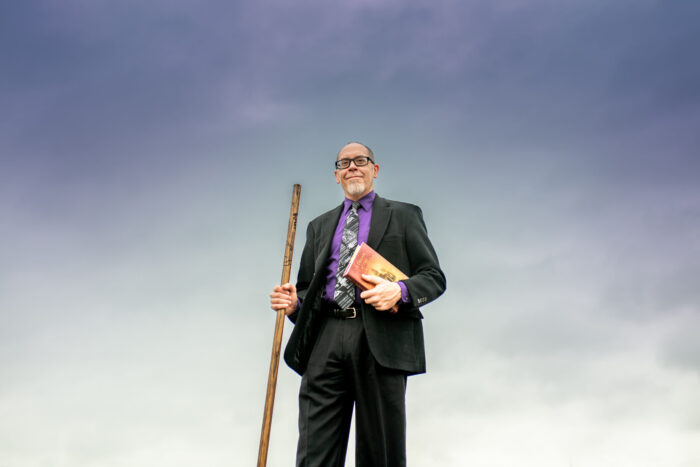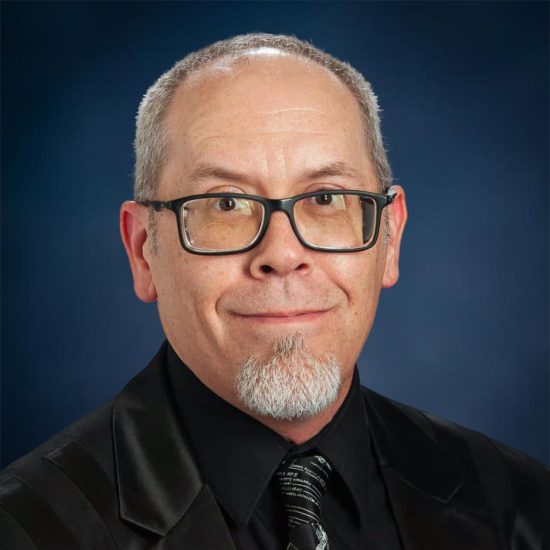
My exploration of history is driven by what I see as my responsibility to inform my students and the public at large about what went right and what went wrong in the past so that we can make better decisions in the future.
John Howard Smith, Ph.D. Professor of History
- Faculty

Dr. John Howard Smith cannot remember a time before he loved history. He shares a birthday with Thomas Jefferson and a name with a founder of Virginia; both of which made it clear to him that he was destined to become an early Americanist. His fascination with religion and religious culture provided a natural research focus.
Now at A&M-Commerce, Dr. Smith continues to pursue his passions as a professor and historian. In the classroom, he reveals the lessons of history to his students. As a historian and author, he has set out to thoroughly explain the influence of religious apocalypticism on American politics and culture, as well as how religion shapes personal and political identities.
A Conversation with Dr. Smith
What has been your favorite course to teach?
Probably my favorite course to teach is the Salem Witch Trials because we delve deeper into primary source documents in the trial records than is possible in almost any other course. So much of what happened in eastern Massachusetts in the early 1690s is identical to what continues to happen in contemporary America. Plus, it's just a lot of fun to introduce students to the finer details about Puritan New England that leads to the dispelling of certain myths about the foundations of American society.
Tell us about a project you are working on or have completed.
I published my latest book, A Dream of the Judgment Day: American Millennialism and Apocalypticism, 1620-1890 with Oxford University Press in 2021, and I am now working on a study of the development of racial identities in colonial New England, and how religion and warfare shaped the identities of white Anglo-American colonists, South Algonquians, and African Americans.
What would you tell a student who is thinking about attending East Texas A&M?
You're going to get the best education available in this region for a relatively low price, and you'll be taught by a faculty the vast majority of whom hold the highest-level degrees in their fields. There's a spirit of community here that you can't find at large universities, and the good faculty-to-student ratio means that you can get more individual attention.
Educational Background
- Ph.D., History, University at Albany, 2003
- Master of Liberal Arts, University of North Carolina at Asheville, 1996
- B.A., History; B.A., Literature, University of North Carolina at Asheville, 1991
Academic Positions
- Professor of History, East Texas A&M University, 2016-present
- Associate Professor of History, Texas A&M University-Commerce(now East Texas A&M University), 2009-2016
- Assistant Professor of History, Texas A&M University-Commerce(now East Texas A&M University), 2003-2009
- Ad-Interim Instructor of History, Texas A&M University-Commerce(now East Texas A&M University), 2002-2003
- Adjunct Instructor of History, Guilford College, 2001-2002
Awards and Honors
- Harry S. Wade Senior Faculty Award
- Paul W. Barras Distinguished Faculty Award for Teaching
- H. M. Lafferty Distinguished Faculty Award for Research
Research Interests
- Early America
- Early Modern Atlantic World
- Religion in American History & Culture
- American Indian History
Professional Organizations
- American Historical Association
- Omohundro Institute of Early American History and Culture
- American Society of Church History
Selected Publications
Featured Courses
HIST 1301 The United States to 1877
HIST 342 Colonial North America
HIST 497 The Salem Witch Trials
HIST 597 Readings in American Indian History


